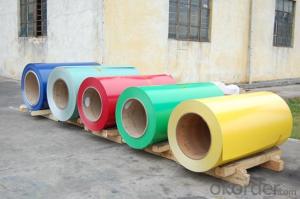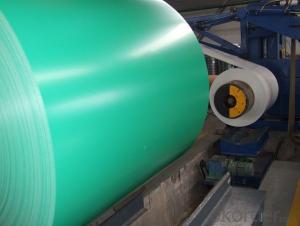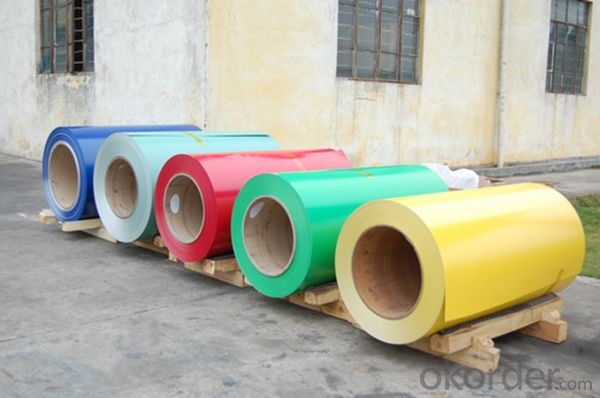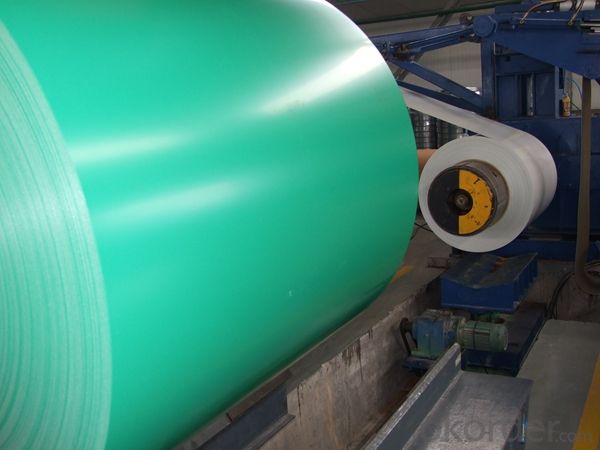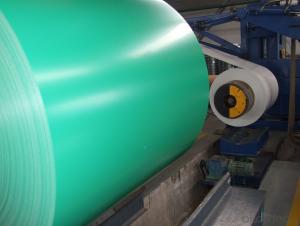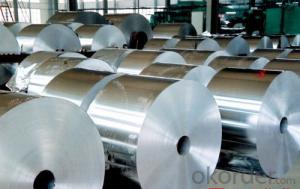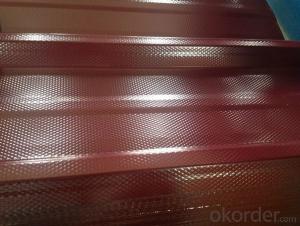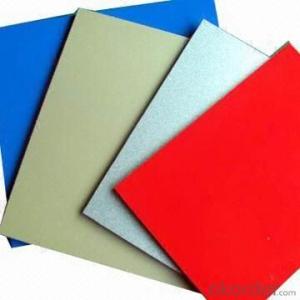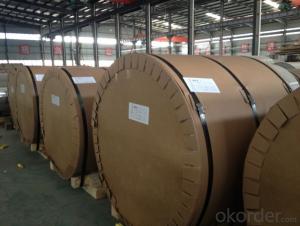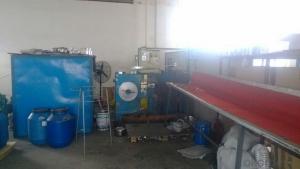Perforated Color Coater Aluminium Coil for ACP Panel Building
- Loading Port:
- Shanghai
- Payment Terms:
- TT OR LC
- Min Order Qty:
- 5 m.t.
- Supply Capability:
- 10000 m.t./month
OKorder Service Pledge
OKorder Financial Service
You Might Also Like
Specification
1. Specification of Color Coater Aluminium Coil for ACP Panel Building
Material | Alloy Aluminum 1XXX,3XXX,5XXX or customer nominated |
Temper | T3, T4, T5, T6 |
Surface | Anodize, electrophoresis, powder coating,PVDF coating, wood grain painting, matted, etc. |
Colour | Any colour based on Standard Germany RAL Mark |
Length | Coating 6.5 meters, Anodizing 6.5 meters, Mill finish 5 meters |
Press Machine | 500-4000 tons all together 64 press lines. |
Fabrication | 1. Windows and doors; 2. Drilling; 3. Bending; 4. Cutting; 5. etc. |
Certificate | ISO 9001 |
Moulding | 1. Using our moulds, no fee; |
2. Using customer drawing, opening mould, usually about 10~50 tons then the moulding can be refunded. | |
3. Mould cost is negotiable base on the order quantity | |
Capability | Annual output 100,000 tons |
2. Application of Color Coater Aluminium Coil for ACP Panel Building
(1).Interior: wall cladding, ceilings, bathrooms, kitchens and balconies, shutters, doors...
(2).Exterior: wall cladding, facades, roofing, canopies, tunnels,column covers , renovations...
(3).Advertisement: display platforms, signboards, fascia, shop fronts...
3. Feature of Color Coater Aluminium Coil for ACP Panel Building
Be free from Oil Stain, Dent, Inclusion, Scratches, Stain, Oxide Dicoloration, Breaks, Corrosion, Roll Marks, Dirt Streaks and other defect which will interfere with use
4. Certificate:
SGS and ROHS(if client request, paid by client), MTC(plant provided), Certificate of Origin(FORM A, FORM E, CO), Bureau Veritas and SGS (if client request, paid by client), CIQS certificate
5. Image of Color Coater Aluminium Coil for ACP Panel Building
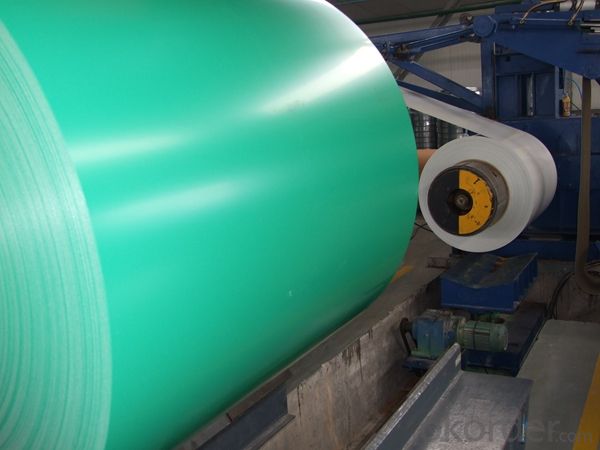
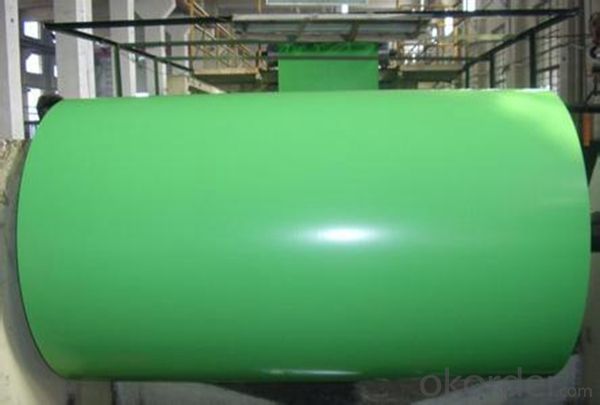
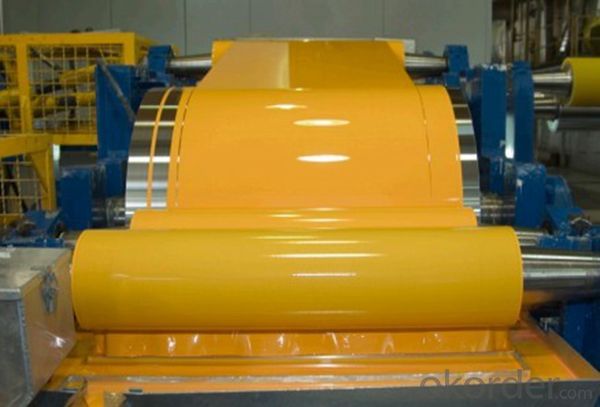
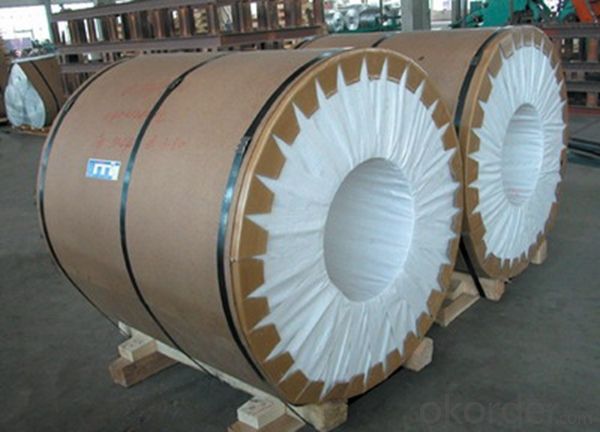
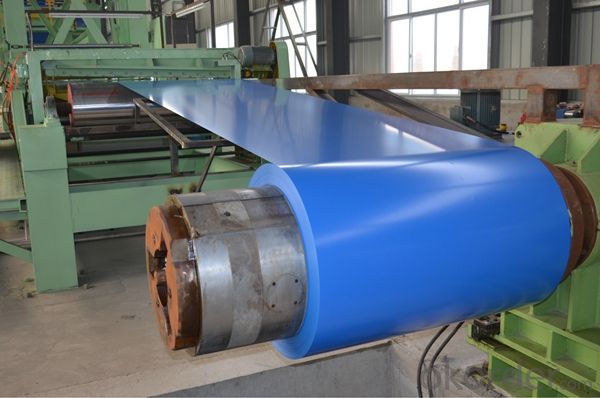
6. Package and shipping of Color Coater Aluminium Coil for ACP Panel Building
eye to wall
eye to the wall
with wood pallet (wooded case also available)
7. FAQ
1) What is the delivery time?
Dpends on actual order, around 20 to 35 days
2)What is the QC system:
We have QC staff of 20 persons and advanced equipment, each production is with MTC traced from Aluminum ingot lot.
3) What market do you mainly sell to?
Australia, America, Asia, Middle East, Western Europe, Africa etc
- Q: Is aluminum veneer the same as color coated aluminum coil?
- Not necessarily, but you may call it like this. Aluminum veneer is the panel processed by aluminum plant. It has different size and thickness according to customer’s requirements. Color coated aluminum coil has been coated through two processes of bake and roast, for example, the coil or sheet formed of the coating of cars.
- Q: Is it possible to utilize steel wires in the creation of jewelry or decorative items?
- <p>Yes, you can use steel wires for making jewelry or decorations. Steel wires are durable and can be shaped into various forms, making them suitable for a range of designs. They are often used in wire wrapping techniques and can be combined with beads or other materials. However, it's important to consider the type of steel used; stainless steel is more resistant to rust and is commonly preferred for jewelry making. Additionally, steel wires may require special tools for cutting and bending, and proper safety measures should be taken during the crafting process.</p>
- Q: How do aluminum coils perform in applications where high strength is required?
- Aluminum coils perform well in applications where high strength is required due to their excellent strength-to-weight ratio. This allows them to provide necessary structural integrity while reducing the overall weight of the application. Additionally, aluminum coils can be further strengthened through various alloying and heat treatment methods, making them suitable for demanding and high-stress environments.
- Q: How much will be burned out if the soaked and oxidized 5182 aluminum coil is melt down and reprocessed?
- Burn out rate is generally between 1% -2.5%, but that varies among plants as their actual situations are different.
- Q: Are aluminum coils suitable for construction purposes?
- <p>Yes, aluminum coils can be used for construction. They are valued for their lightweight, corrosion resistance, and high strength-to-weight ratio, making them ideal for applications such as roofing, facades, and structural components. Aluminum's malleability allows for easy shaping and forming, which is beneficial in various construction projects. It's also sustainable due to its recyclability, reducing environmental impact.</p>
- Q: What are the different elongation values of aluminum coils?
- The elongation values of aluminum coils can vary depending on the specific alloy and temper of the aluminum. However, on average, aluminum coils typically have elongation values ranging from 8% to 30%.
- Q: If you were to make something from each of these.which is more expensive? aluminum or carbon fiber ?which is stronger?What would the advantages or disadvantages of each be?
- CF is always more expensive - mostly because of production costs. Aluminum can be bent, machined, and extruded - all relatively cheap processes. CF has to be molded and typically requires a long cure time - so, slow and expensive. CF has higher strength to weight ratio - so if you're building an airplane or other thing where weight is critical... But, the strength thing is really complicated - how far does either deflect under a given load? And is deflection a good thing as in, say, a carbon fiber fly rod. At the deflection limit what happens? Aluminum takes a permanent bend, carbon fiber shatters. An aluminum car fender given a small bump will dent - a carbon fiber one will bounce back without a scratch. Given a larger bump the aluminum will dent more and the carbon fiber one will shatter. And while we're talking about bending - aluminum will 'cold work' - that is if you bend it back and forth and back and forth a zillion times first it becomes harder, then more brittle, then it breaks. Carbon fiber designs can be made to flex repetitively for much longer. Then there's heat issues. Aluminum can take a lot of heat. CF is actually 'composite construction' where some plastic (polyester resin, epoxy resin, etc) is required to bind the fibers together. All of these resins have different chractersitics when heated, but most of them have a Tg (temp at which they start to deform) of maybe 250 F or, for some hgih end epoxy resins, maybe 400 F - epoxy that can handle higher heat than that gets both expensive and difficult/dangerous to work with. So, carbon fiber leadin edges on the wing of an airplane that is designed to go supersonic might not be such a good idea. There's definitely no simple answer to this question.
- Q: Can aluminum coils be used in heat exchanger fins?
- Yes, aluminum coils can be used in heat exchanger fins. Aluminum is a popular choice for heat exchangers due to its excellent thermal conductivity, lightweight nature, and corrosion resistance. The use of aluminum coils in heat exchanger fins allows for efficient transfer of heat between two fluids, making it an ideal material for this application. Additionally, aluminum coils can be easily formed into various fin shapes, providing flexibility in design and maximizing the surface area for heat transfer. Overall, aluminum coils are commonly used in heat exchanger fins to enhance heat transfer efficiency and improve the overall performance of the heat exchanger system.
- Q: Aluminum silicate felt fiber needle blanket noise reduction?
- And in the heat insulation, aluminum silicate needled blanket technology with a special one-time plastic molding, as the car chassis fireproof heat insulation layer, and now Xiamen Kinglong has reached a cooperation agreement.
- Q: How do aluminum coils compare to other metal coils?
- Aluminum coils offer several advantages when compared to other metal coils. Firstly, aluminum is a lightweight material, which makes it easier to handle and transport. This characteristic also contributes to lower shipping costs. Additionally, aluminum coils have excellent corrosion resistance, making them suitable for various environments and applications. They are also highly malleable, meaning they can be easily bent and shaped without compromising their structural integrity. Moreover, aluminum coils have good thermal conductivity, enabling efficient heat transfer in applications such as HVAC systems. Finally, aluminum is a highly sustainable and recyclable material, making it an environmentally friendly choice. Overall, aluminum coils provide a cost-effective, durable, and versatile option compared to other metal coils.
Send your message to us
Perforated Color Coater Aluminium Coil for ACP Panel Building
- Loading Port:
- Shanghai
- Payment Terms:
- TT OR LC
- Min Order Qty:
- 5 m.t.
- Supply Capability:
- 10000 m.t./month
OKorder Service Pledge
OKorder Financial Service
Similar products
Hot products
Hot Searches
Related keywords
